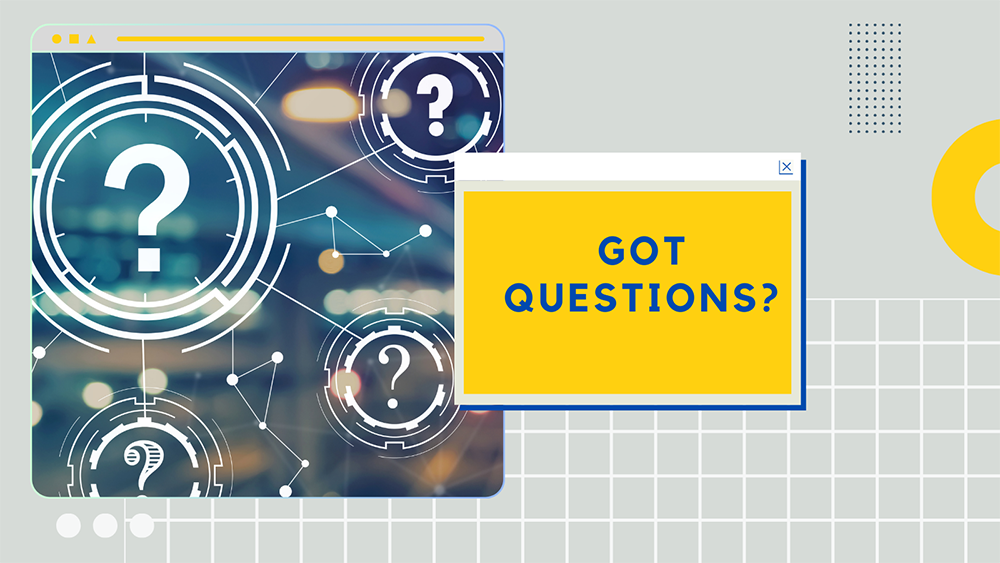Frequently Asked Questions

Below are some of our most common questions and their answers:
A "student with a disability" is a person enrolled at a community college who has a verified condition which limits one or more major life activities, resulting in an educational limitation. Major life activities include seeing, hearing, speaking/communicating, walking, breathing, learning, sleeping, caring for oneself, and performing manual tasks.
An educational limitation occurs when a disability prevents you from fully accessing and/or participating in classes, activities, or services offered to students without specialized academic adjustments, auxiliary aids, services, and/or instruction.
An accommodation is an academic adjustment, auxiliary aid, service, or instruction that is provided to a student with a disability in order to ensure equal access to all educational activities, including courses, workshops, student activities, and campus services.
If you have a condition that interferes with your ability to fully participate in and/or access your courses, you may qualify for SAS services. To register, first you must apply to the College and get a student number. Next, locate or obtain any documentation that specifies your condition, then apply to SAS via our SAS Student Portal. Please see our How to Apply to SAS webpage for further details on all the steps.
SAS is required to document each student's disability. This can often be done in one of the following ways:
If you received special education services in high school, you likely have one or more of the following documents you can provide to verify your disability:
- IEP (Individualized Education Plan)
- 504 Plan
- Psychoeducational Report
- Speech/Language Report
If you don't have one of the above documents, here are some additional examples of what you can submit to document your disability:
- Medical reports
- Psychological reports
- Hospital discharge forms
- Forms that document your eligibility for services from Department of Rehabilitation, Regional Center, or Supplemental Security Income (SSI)
- Disability rating form from Veterans Affairs
USE OUR FORM: If you don't have any documentation but you have been diagnosed with a disabling condition, you may provide our Verification of Disability form for your doctor, therapist, or other professional to fill out and return to us.
OBSERVABLE CONDITIONS: If you have a disability that is "visible" or "obvious" to others, such as cerebral palsy, blindness, or a broken arm, you may not need to provide documentation. When you have your first appointment in SAS, you will meet with one of our specialists who will determine if they can verify your disability simply by observing you.
UNDIAGNOSED MENTAL HEALTH ISSUES: If you are experiencing mental health symptoms, such as depression or anxiety, for which you are not being treated, we encourage you to go to Student Health Services. They may be able to provide you with therapeutic services and determine if you have a mental health condition which might qualify you for SAS services.
Once you have met with your SAS specialist and reasonable accommodations have been determined, you will have access to send Letters of Accommodation to your professors every semester using the SAS Student Portal. Once you have submitted your Letters of Accommodation, it is always a good idea to follow up with your professor during their office hours or by email to introduce yourself and review the accommodations you wish to utilize in each class. Since each class is different, you may not need to use all of your accommodations in every class.
- Priority enrollment: students who qualify for SAS services will be allowed to enroll on the first two days of enrollment each semester (Tier 1); information about the upcoming enrollment cycle can be found on our Info for Continuing Students page.
- Class accommodations and academic adjustments: these include things like notetaking and test-taking accommodations; descriptions of these can be found on our All About Accommodations webpage;
- Specialized classes: SAS offers several classes to support our students, including ACLR 101, ACLR 102, and AED 42.07. Descriptions of these courses can be found on our Instructional Offerings webpage.
- Academic and career counseling appointments: eligible students can meet with one of our counselors to explore majors and careers, plan classes, create Education Plans, learn about transfer, prepare for employment, and so much more!
- Specialist appointments: meet with your assigned SAS specialist to discuss your accommodations, practice self-advocacy
skills, learn strategies to support your learning style.
- Counselor and Specialist appointments can be scheduled in the SAS Student Portal, by calling (562) 860-2451 ext. 2335, emailing sasappt@cerritos.edu, or in person in the SAS office.
- Assistive Technology Training: get trained on various software programs and features which enable you to better access and understand textbooks and other class materials, complete your homework, and enhance your study skills! Go to our Assistive Technology webpage for more info!
- Materials in Alternate Formats: these include textbooks and other class materials in formats such as Braille, audio, electronic text, and/or enlarged so you can access the information in a way that works for you. Check out our Alternate Media webpage for more info.
For more information about SAS services, you can contact us in one of the following ways:
- PHONE: (562) 860-2451 ext. 2335 (voice); (562) 239-3219 (video-DHH only)
- EMAIL: sasappt@cerritos.edu
- IN PERSON: in the SAS Office. See the left margin for a link to the campus map and our office hours.

Stay Connected